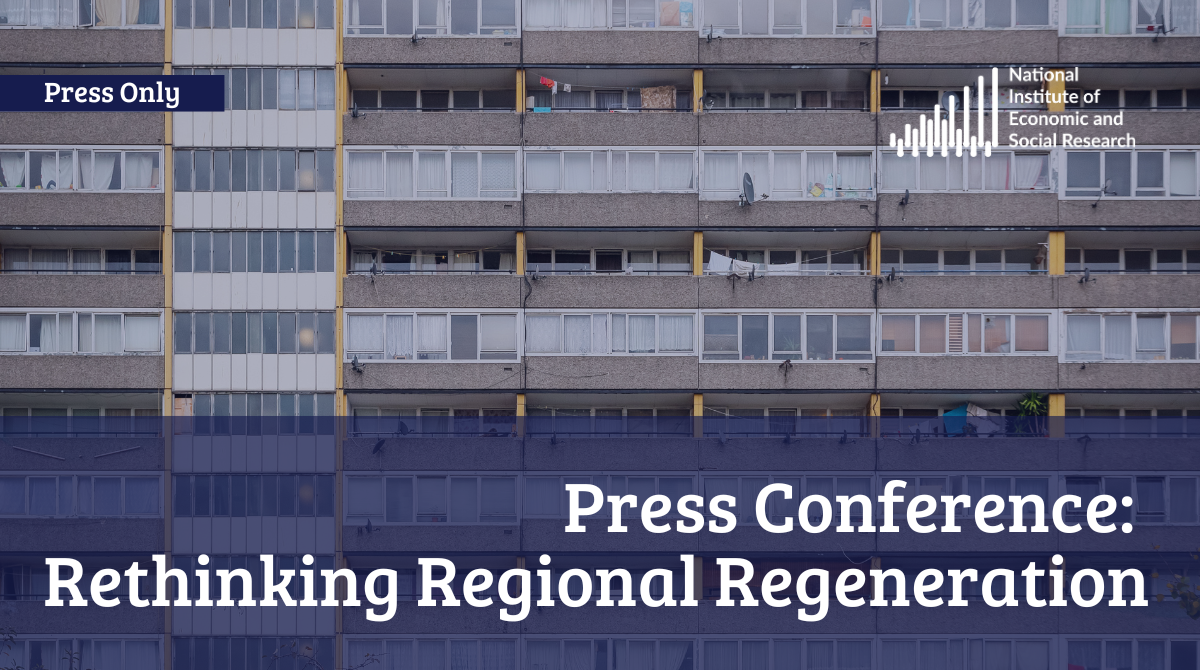How Artificial Intelligence Could Narrow the Productivity Gap
As the United Kingdom seeks to boost productivity through greater public and business investment, what tools can firms use to raise their productivity performance? Our Deputy Director Professor Adrian Pabst spoke with Dr Larissa Marioni, Principal Economist in NIESR’s Public Policy team, about the role Artificial Intelligence can play in helping companies grow.

How does Artificial Intelligence innovation influence productivity at the firm level, especially in the context of European businesses?
The productivity slowdown since the 2008/09 financial crisis has been accompanied by a widening productivity gap between leading firms and those lagging behind. A potential explanation for this event lies in the challenges faced by laggard firms in keeping pace with the technological advancements adopted by market leaders. In addition, the Fourth Industrial Revolution has brought a transformative shift in productive and organisational practices, driven by the development and implementation of digital technologies, including Artificial Intelligence (AI).
Our research uses firm-level data across 15 European countries and examines the productivity effects of AI innovation, measured by patenting success in AI fields. Innovation in this area gives firms greater technological capabilities and allows them to improve operational efficiency and gain from best technical and organisational practices developed at the frontier. The results show that AI innovation is directly associated with productivity gains, ranging between 6 per cent and 17 per cent as a result of an event analysis (difference-in-differences) in which productivity premium is identified by comparing the performance of AI firms with that of similar firms that have not introduced any AI innovation.
Do firms further from the productivity frontier benefit from AI innovation in the same way as leading firms?
While leading firms benefit substantially from AI, our study finds that firms further away from the productivity frontier can also gain from the new technology. Using a Distance-to-Frontier (DTF) analysis, the results show that the benefits arising from AI innovations are proportional to a firm’s distance from the technological frontier. For laggard firms, the direct impact of AI ranges between 2 per cent and 6 per cent, while indirect effects are more modest, between 0.3 per cent and 0.7 per cent. By developing AI technologies, laggard firms can improve their capabilities and narrow the gap with the frontier, suggesting that AI may act as an equalising technology.
Overall, our findings indicate that AI has the potential to increase productivity not only for a few leading firms but also for a wide range of firms, potentially contributing to reversing the ongoing trend of declining productivity.
What implications do your findings have for policymakers?
The findings from our research suggest that AI holds substantial promise for increasing firm productivity, but its potential could be even greater with targeted policy measures. Policymakers aiming to exploit AI to promote economic growth should consider strategies that allow a wider range of firms to adopt and innovate in the new technology.
Key initiatives could include increasing investments in AI research, expanding access to digital infrastructure, favouring collaboration in AI and related technologies fields between universities and Small and Medium Enterprises (SMEs), and implementing targeted training programmes to make AI more accessible to firms beyond the leading frontier.
For firms further away from the productivity frontier, policies aimed at facilitating AI development could narrow the productivity gap by building capacity for knowledge absorption and technology transfers from leading firms, encouraging more inclusive and widespread implementation and diffusion of productivity-enhancing technologies. This is especially relevant for countries like the UK, where there are a significant number of unproductive businesses across the country that are slow to adopt advanced technologies. Our findings suggest that AI has the potential to function as a General Purpose Technology (GPT), creating opportunities for productivity improvements across the economy. Consequently, targeted policies supporting AI would not only enhance firm-level productivity but could also address the broader stagnation observed in European productivity growth. These policies would help to create a more level playing field, stimulate innovation across sectors, and ensure Europe remains competitive in the evolving digital economy – a core theme of the recent report by Mario Draghi.
This interview is based on findings from our recently published paper “Productivity performance, distance to frontier and AI innovation: Firm-level evidence from Europe” (Marioni, L.D.S., Rincon-Aznar, A., & Venturini, F.).























